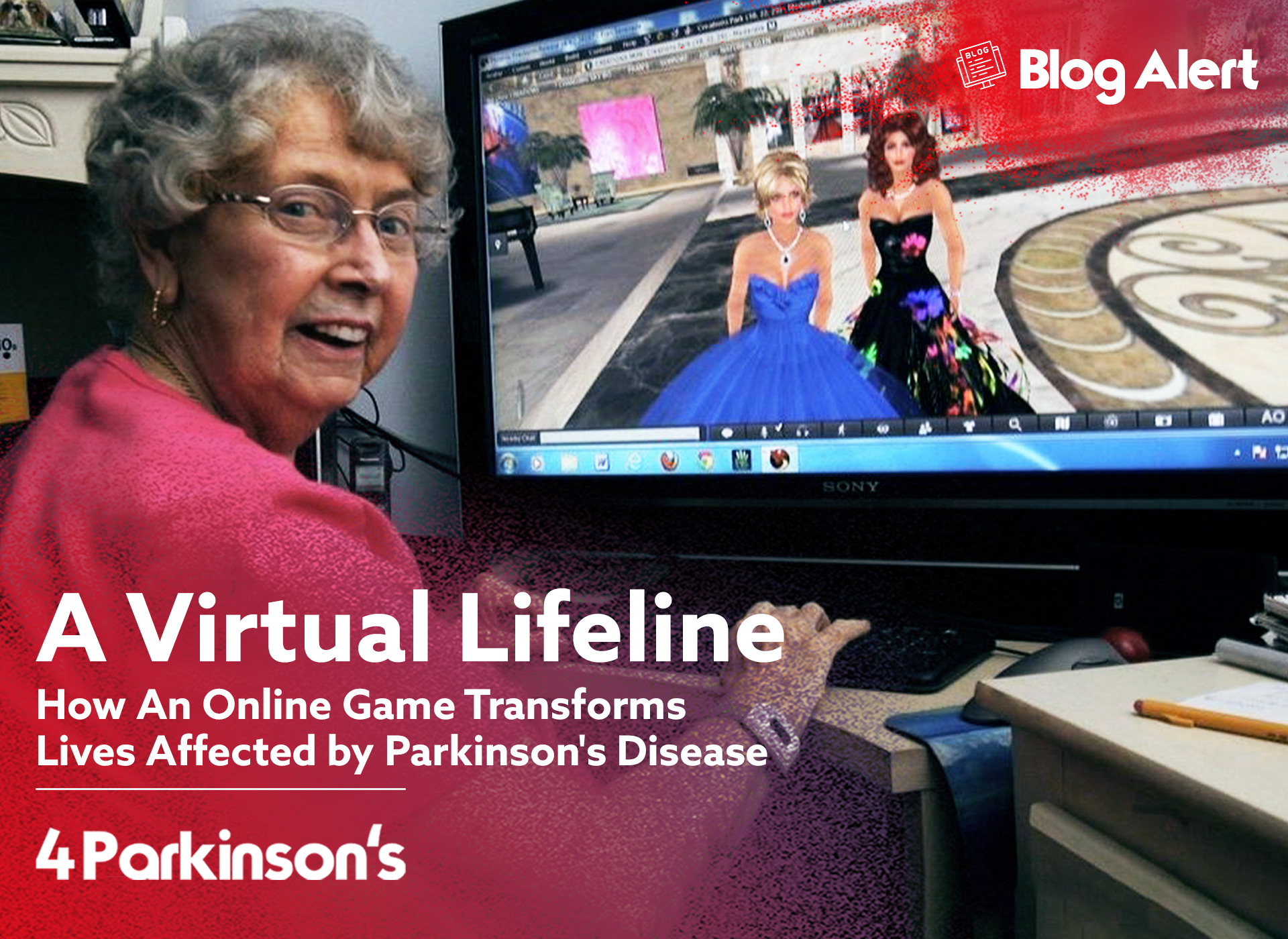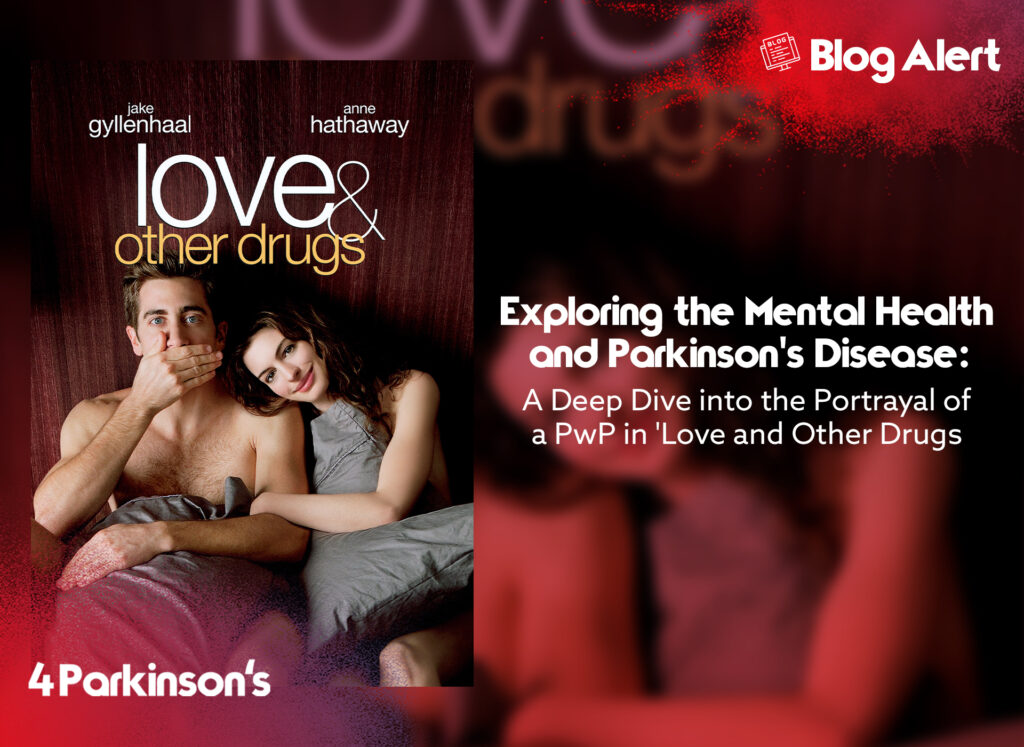
"Love and Other Drugs" is a 2010 Hollywood film that follows the lives of Jamie Randall and Maggie Murdock. Set in 1990s Pittsburgh, the movie tells the story of a charismatic salesman who enters into a relationship with a young woman diagnosed with Parkinson's disease. The film honestly portrays Maggie’s challenges when experiencing early-onset Parkinson's disease.
Jamie encounters Maggie, an independent and emotionally unavailable artist who avoids meaningful connections. The movie takes us on a whirlwind journey through their romance, showcasing both the highs and lows of their relationship.
Beyond the central love story, "Love and Other Drugs" subtly conveys the message that Parkinson's disease extends beyond physical impairments such as motor skills and cognition. As one of the best Parkinson's movies, it explores the impact of the disease on mental health and self-perception. Through the movie, viewers understand that Parkinson's is not limited to hand tremors or coordination issues; it encompasses the daily struggles of living, such as navigating romantic relationships and pursuing fulfilling careers. In this way, "Love and Other Drugs" sheds light on the complexities of Parkinson's disease, providing a deeper understanding of the condition beyond its visible symptoms.

See the review by James Berardinelli from The REELVIEWS:
Edward Zwick is best known for his work on television. Along with Marshall Herkovitz, he was a driving force behind two long-running TV series (thirtySomething and Once and Again). He was also an essential contributor to many others (including My So-Called Life and Family). In between his television endeavours, Zwick has found the time to direct ten feature films, most of which vary from "good" to "excellent." Love and Other Drugs represents the first time since his early big-screen ventures that Zwick has brought the same kind of relationship-centred dramatic comedy approach to a motion picture. The result, bolstered by solid acting and an intriguing backstory, is an unqualified success. Love and Other Drugs may be the most honest romance to grace the screens during 2010.
The movie transpires between 1996 and 1999 - a period in American society when the word "Viagra" entered the lexicon. Patented by Pfizer in 1996 and approved by the FDA in 1998, Viagra became not merely another drug on the market, but the cure for many Americans, whether they needed it as a helper for erectile dysfunction or whether they were looking for an injection of pizzazz into their sex life. During this time, Jamie Randall (Jake Gyllenhaal) starts a career as a pharmaceutical salesman at Pfizer. Initially, he has difficulties meeting his quotas, much to the chagrin of his veteran partner, Bruce Winston (Oliver Platt). Then Viagra hits the market, and Jamie becomes an instant star whose newest product is desired by the horny, influential Dr Stan Knight (Hank Azaria). Meanwhile, Jamie embarks upon a relationship with one of Dr Knight's patients, the impulsive, brittle Maggie (Anne Hathaway). At age 26, she experienced early onset Parkinson's and, as a defence mechanism, she has walled herself off from serious relationships. Jamie is determined to breach those walls, but the task may defeat even his glib tongue and confident ways.
The first thing one notices about Love and Other Drugs is that it's an adult romance. So many current love stories are targeted at teenagers that it's rare to find one that sidesteps the numerous contrivances that permeate the genre. Love and Other Drugs presents an honest, sometimes brutal chronicle of a complicated relationship. There are no "meet cutes" or romantic complications. The issues Jamie and Maggie encounter are those faced by many couples where emotional openness is a barrier and where the sickness of one partner creates a commitment imbalance. And, although Maggie's Parkinson's is a factor, this is by no means a "disease of the week" motion picture. It avoids the cloying, artificial sentimentality of a Terms of Endearment.
Love and Other Drugs has an unfettered view of sexuality. It's part of the human experience and is treated as such, primarily since the initial strand binds Jamie and Maggie. Zwick has a specific approach to the characters' nudity, and it's not based (exclusively) on titillation. There's much flesh early in their interaction, during the "Honeymoon phase." Later, as the characters' focus shifts from physical to emotional, instances of nudity become uncommon. There is an inverse relationship between physical nakedness and emotional nakedness.

One element of the story that doesn't work as effectively as it might have is a satirical airing of the drug industry's dirty laundry. Although there are insights into how things work, none are shocking (especially to a cynic like me) and rarely does the screenplay bear its fangs. To the extent that Love and Other Drugs is intended to make a statement about the amorality of the pharmaceutical industry (bus trips to Canada) and how it manipulates doctors and patients (Knight's demand for giving preferential treatment to Zoloft over Prozac), it succeeds only partially. The movie works better on a human level than as the bearer of a message.
As has been Zwick's trademark on TV, although not necessarily in movies, drama and comedy are entwined. There are times when the relationship between Jamie and Maggie plays out like a romantic comedy and occasions when it has a closer kinship to a tragedy. The tonal shifts are expertly handled and always seem comfortable. The one character who is on hand primarily for comedic purposes, Jamie's younger brother, Josh (Josh Gad), also makes one of the most insightful observations.
Working together for the second time as romantic partners (after Brokeback Mountain), Jake Gyllenhaal and Anne Hathaway show sufficient passion and chemistry for viewers to believe in them as a couple and be invested in their characters’ fates. Both are underrated actors, and Love and Other Drugs illustrate the breadth and depth of their abilities. Hathaway, in particular, has been saddled with baggage dating back to her early career. Still, the growth she has shown as an actress in recent years enriches this performance and allows her to give Maggie multiple dimensions. Gyllenhaal's Jamie, although less complex, is as fully realised.
Zwick's resume sparkles with more hits than misses, so it should come as little surprise that, despite mediocre marketing, Love and Other Drugs is a solid entry into a lacklustre end-of-the-year season. (And the comparisons to Up in the Air are imprecise - it's not nearly that incisive, but it has a bigger heart.) Regardless of whether or not this becomes a player in the Oscar game, the movie is worth seeing for anyone who cares about a love story that isn't geared toward those still struggling with the immediate aftereffects of puberty.
Join our community in spreading hope and strength. Tell us your unique journey with Parkinson's to uplift and empower others.